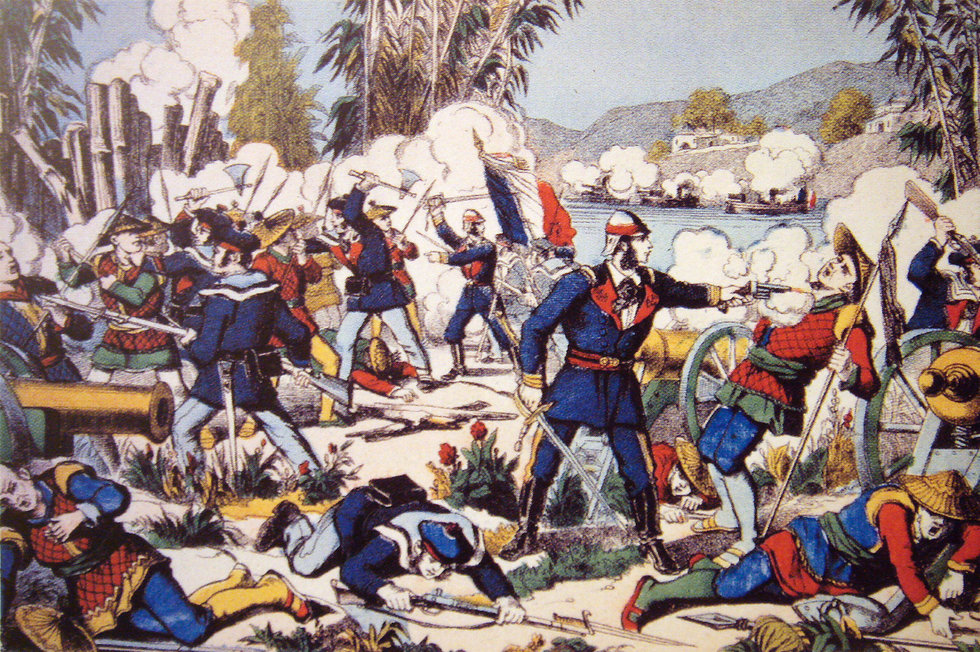I took French I this semester, and it has changed my entire perspective. Let's start with some context: despite my major being in the STEM field, it's a Bachelor of Arts, so I must take a 2 language courses. USF offered more than enough choices for my taste, but 3 choices stuck out most: German, Japanese, and French. I was a little reserved at first because my last language course, which was Chinese, ended in a disaster; that, and the fact that I'm on the fence about choosing between my 3 favorite languages.
 On the fence about taking one of 3 languages? Close your eyes and take a leap of faith!WikiMedia
On the fence about taking one of 3 languages? Close your eyes and take a leap of faith!WikiMedia
One night, in a dream (not even kidding), I was told that I should take French to complete my family's trilingual legacy, one that was unfortunately ceased after the Vietnam War. The next morning of December, I went straight to Schedule Planner and chose French I. It was anxious not knowing what to expect, especially when classes don't start until January. When it did start, however, I felt as if a bond has formed between me and my mother tongue - Vietnamese.
The first classes didn't offer much. The classic "Bonjour, ca va?" was not the determining factor that made me love this class. Once the vocabulary started rolling in, foreign words naturally made sense to me, because I have seen them in Vietnamese before. Take savon for example, it means soap. In Vietnamese, especially in my region, it's called xà bông. Similar? Here's another example: plafond - ceiling. Guess how it's pronounced in Vietnamese: la-phông! (the ph- is pronounced as f-).
"Why is there this difference," you may ask. This came about due to colonization, specifically, the Indochina colonization of France during the 19th century. Prior to that, our language was a hybrid form between Vietnamese pronunciations and Chinese annotations (this is an overly simplified explanation, for more details, please read National Language Script). In order to eliminate Confucianism and cut the Vietnamese's ties from their heritage, the French decided to altogether remove Chinese from our daily lives, opting for the Latin alphabet. They took parts of the aforementioned pronunciations and transcribed them with the Latin alphabet. In addition, they also added French words into those that we don't presently have within our own language.
 The Tonkin Campaign - an invasion has begunWikiMedia
The Tonkin Campaign - an invasion has begunWikiMedia
This led to a plethora of French words being present in Vietnamese, many of which are used in present day. Some of my favorites are tournevis - tuốc-nơ-vít - screwdriver, volant - vô-lăng - steering wheel. This is accompanied by an alphabet whose pronunciations are exactly similar to French! This trend is inconsistent, however, and this inconsistency varies between regions. The difference is the most apparent when comparing Northern and Southern Vietnamese speech. The North (not all of them) tends to use more French in their speech while the South tends to use more Cantonese in their speech. This makes Vietnamese such an unusual language whose beauties are multi-faceted.
My French course is closing to an end soon, and I have learned a lot from it. It has also given me a new look into my language, giving rise to an appreciation I never had before. Culture is awesome, but it's even more so when one sees a familiar word in a foreign land.
Until next time, a bientôt!



















